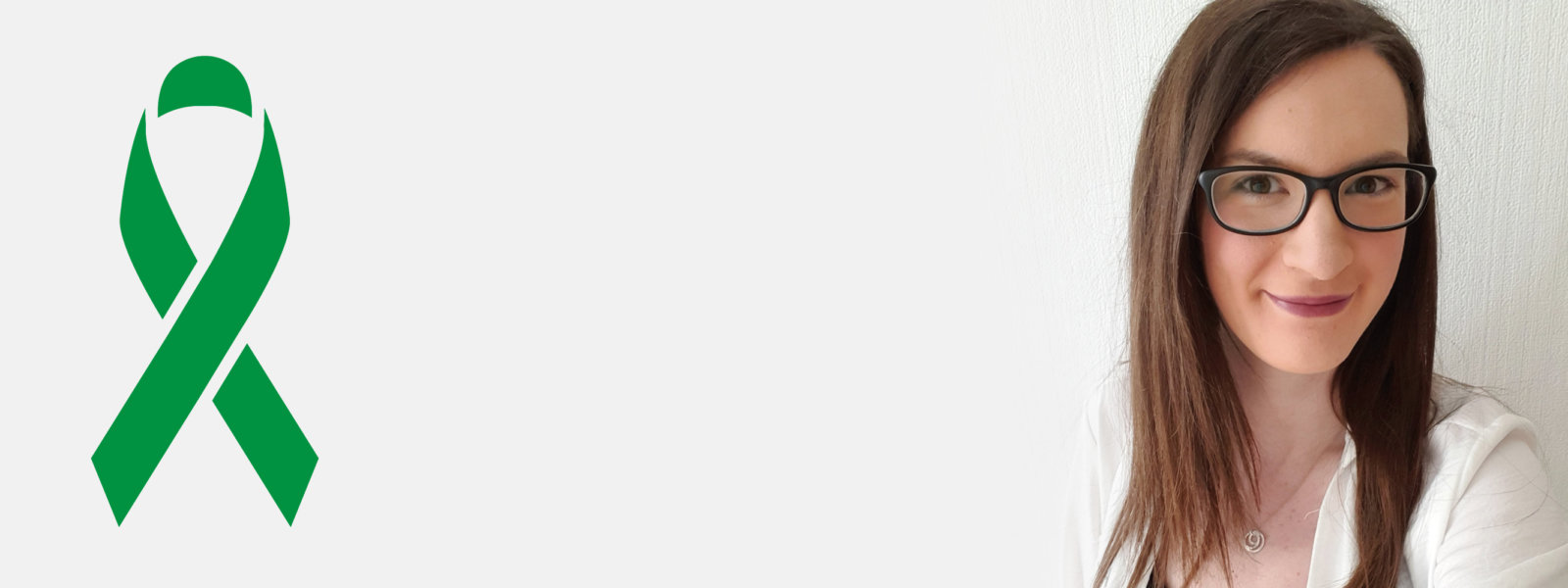“Self-care is far from selfish”
Following her own struggles following her PH diagnosis, Sophie Papageorgis now works as a psychotherapist and is passionate about helping people with their mental wellbeing. We caught up with her to hear about her pulmonary hypertension journey.
How long has PH been part of your life?
When I was five, tests showed the pressures in my lungs were really high because I was developing Eisenmenger’s syndrome as a result of being born with a hole in my heart. I was 16 before I started getting symptoms though.
I was breathless, fainting, and generally feeling awful. There was a long period of repeatedly going to my local A&E and being told I was having panic attacks because I was doing my AS Levels and I was a teenage girl.
Eventually I was diagnosed with pulmonary hypertension and although I didn’t want to hear it, there was relief that at least it wasn’t in my head. I was started on treatment at this point, and as it was 20 years ago, there weren’t so many drugs available.
What impact did the diagnosis have on you?
It all had an awful effect on my life. My GCSEs were out of the way, but the symptoms started when I was in my first AS Level year, and I got really depressed – to the point where I had a psychotic episode.
I did take my AS Levels, and then my A Levels, but it was difficult as I’d missed so much school. After my exams I took a year out and did nothing, because of how traumatic everything had been.
I received some help from a therapist (although I was reluctant at first), and I then saw a psychiatrist and spent some time on medication. Things got better but it wasn’t the easiest time back then. It’s horrible when you’re not in control and your body isn’t doing what you want it to do.
What led you to your chosen career path?
My own experiences of my mental health, especially during that time, impacted my desire to become a psychotherapist.
Looking back, I do wish had been more open to the psychological support that was made available to me. It would have made a huge difference.
I was working in customer services for an online retailer when I started volunteering for Samaritans as a listening volunteer, and that’s what inspired me to finally make the change. I trained for three years and qualified as a psychotherapist 18 months ago.
Psychotherapy is so rewarding because I feel like I’m doing something worthwhile. It’s amazing seeing how people change. Some may have very low self-esteem, or are very traumatised, and working through it can make such a huge difference.
I’m constantly learning, and I learn so much from all my clients; they are amazing.
How do you balance being a psychotherapist with the challenges of PH?
These days I get breathless when I walk, and I get so many chest infections. I also get a lot of headaches, because of the oxygen levels, but I generally push on through as I enjoy working. I do recognise that I need to take some of my own advice and practice self-care!
It’s important not to self-disclose with clients, but everything I’ve been through does help me to empathise with people, especially those facing health challenges. My personal background gives me unique insight into what people are feeling, including all the anxiety and the existential worries.
Has your work as a psychotherapist helped you too?
I think it does help to know I’m not the only one who has experienced these things. I’m still not very good at showing when I’m sad about things but I’m getting better at voicing it.
I’ve had a lot of psychological support as an adult. When you’re training to be a counsellor you have to be in therapy yourself, so I’ve had years of therapy, and it’s still ongoing. I’m still working on myself in that respect, and I understand that it’s a lifelong journey.
Why is it so important to take care of mental wellbeing when you have a physical illness?
Bodies and minds are so incredibly linked. An illness like PH can take so much out of you physically that you need to build yourself up however you can, so practicing self-care and showing yourself compassion is really important. PH is hard, and people don’t always get it.
The phrase ‘self-care’ gets thrown around a lot. It means prioritising yourself, making sure you’re looking after yourself holistically (all of you). It’s about doing things that make you feel that you’re important, and that you’re worth doing things for.
It could be looking after what you eat, taking some exercise if you can, or having a day in bed because you’ve run out of energy. That’s ok too.
Self-care is far from selfish. You can still think about other people whilst thinking about yourself and you do need to take care of yourself, especially when you have a condition like PH that other people can’t see.
















